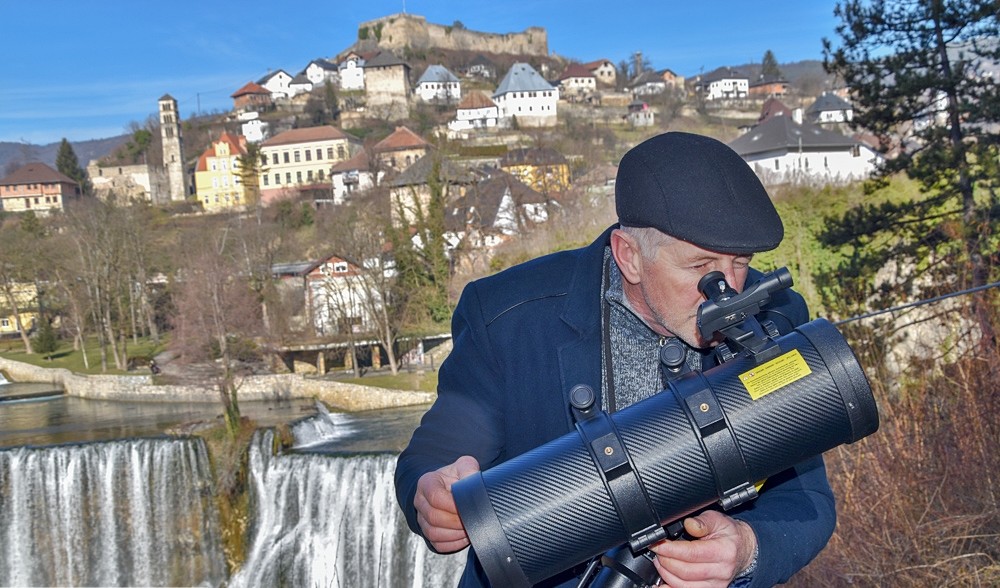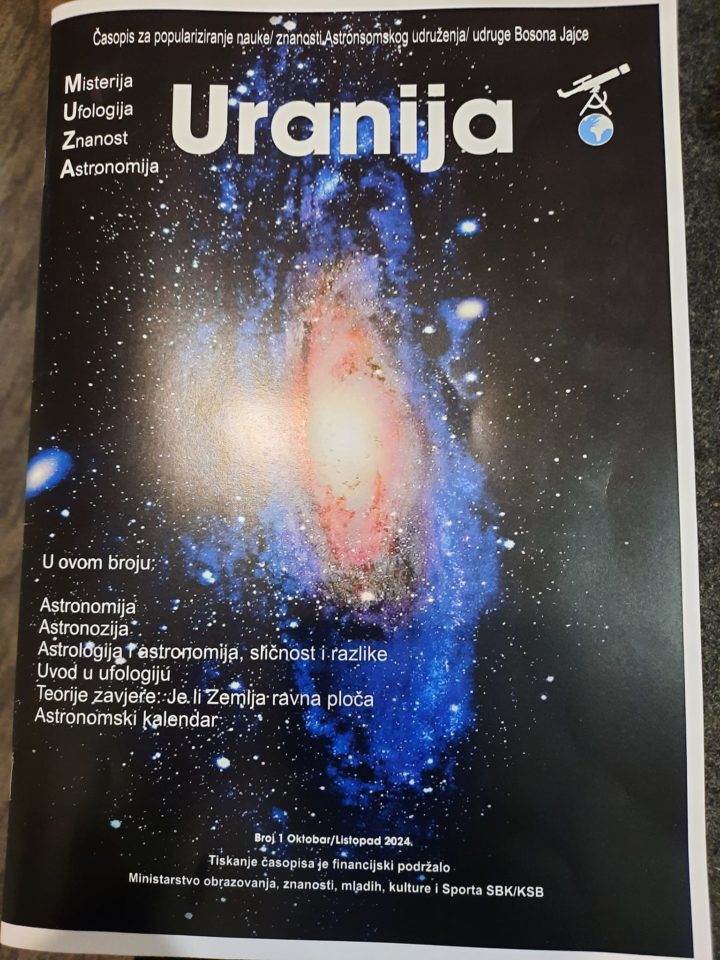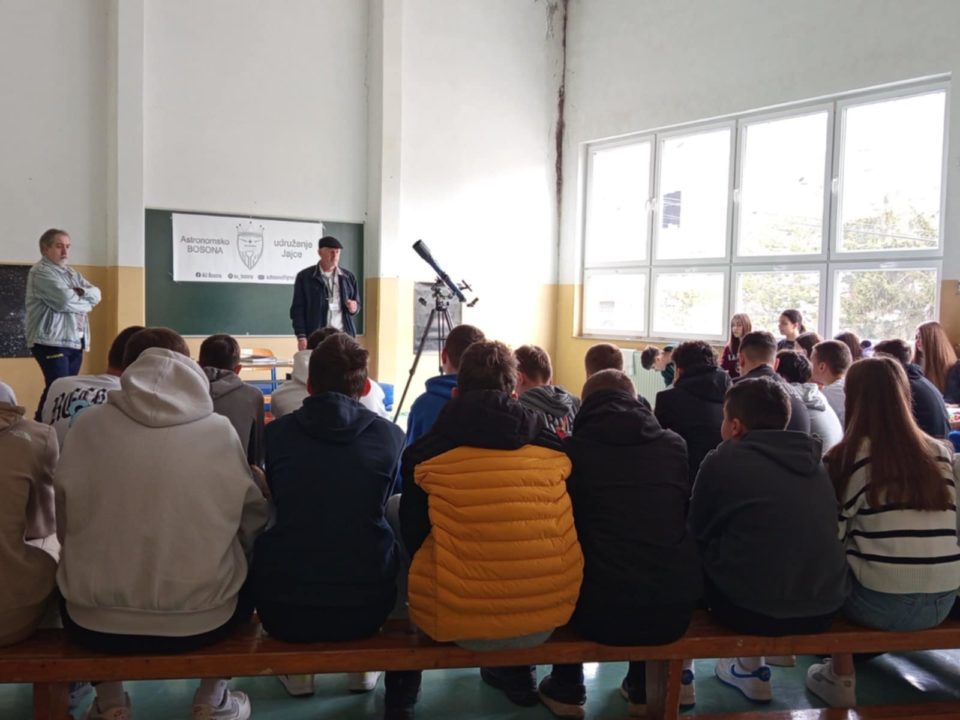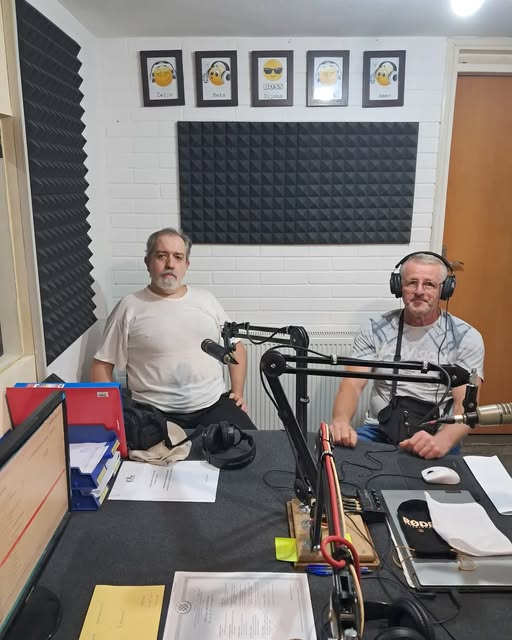
Stargazing—one of mankind’s eternal mysteries—is just one of the Bosona Astronomical Association’s activities.
They also provide theoretical and practical training on astronomy in Jajce elementary schools and keep the public informed about the latest astronomical developments through publications and radio broadcasts. What’s more, they are working to build an observatory that would join the International Astronomical Union (IAU) and thus set a new standard in the field of astronomy for the region.
The initiative to establish an astronomical association in Jajce began with the current president of the association, Edin Đulić, who rallied outer-space enthusiasts with a Facebook post. The goal of the post was to gauge whether anyone in Jajce was interested in helping build an astronomical association. Several interested parties came forward, and an initial meeting was organized in February 2022. A year later, after working out the plan and strategy, they founded the Bosona Astronomical Association.
Shortly thereafter, Đulić explains, they started implementing projects like Uranija, an interactive magazine that aims to promote both the association and science itself. Bosona also collaborates with experts from abroad.

“We have achieved a series of partnerships both in the country and beyond the borders of Bosnia and Herzegovina. We bought professional astronomical equipment for the planned construction of the astronomical observatory in Jajce,” said Đulić.
He recalled that several years ago, Jajce residents saw members of Bosona with telescopes in the city center for the first time. This was one of the association’s first moves, intended to introduce citizens to Bosona and provide them with more information about future developments. Children showed a particular interest, and a project was eventually started to teach astronomy in schools.
“We’re active in educating students in Jajce’s elementary school, where we are warmly welcomed. We try to encourage young people to do things that will benefit them so that the whole community will benefit. We’re glad to see that the youngest are interested in our educational classes,” said Đulić.
Two Bosona staff members have successfully completed NASA’s International Astronomical Search Collaboration training program, which focuses on the timely detection of potentially dangerous objects like asteroids or comets near Earth.

“Certificates from the most respected space agency in the world give us the right to fight for the construction of an observatory in Jajce. There, we would apply our acquired knowledge and contribute to the world union of observatories whose primary task is exactly this,” said Đulić.
The astronomical observatory’s construction is planned for the village of Bulići, five kilometers from Jajce at an altitude of 700 meters. They are currently resolving certain administrative-legal issues and expect this process to be completed soon, after which they will be able to access planning documentation and conduct a feasibility study for joining the world observatory union.
Goran Crnogorac has been in Bosona since the first meetings, when their ideas were only theoretical. As the association’s secretary, he delivers lectures and participates in numerous astronomy seminars in Sarajevo and Banja Luka. He also started a radio show that is broadcast on Radio Jajce.
“The shows air on the first Monday of every month. So far, we’ve had 17 shows where we’ve covered various topics. The responses of our listeners have been more than positive,” Crnogorac noted.

He is also one of the managers and editors of Uranija magazine.
“We didn’t want the magazine to be targeted at a narrow circle of people, so we expanded the topic selection to include something for everyone related to the subjects of science and nature,” explained Crnogorac. He added that volunteers from other cities have reached out to their team, which they have welcomed, and that they soon hope to begin distributing the magazine online.
The Bosona Astronomical Association has undoubtedly secured the support of the next generation to carry on its mission. Given the growing enthusiasm for science and the need to expand existing knowledge, it is safe to say that Bosona’s time is yet to come.






